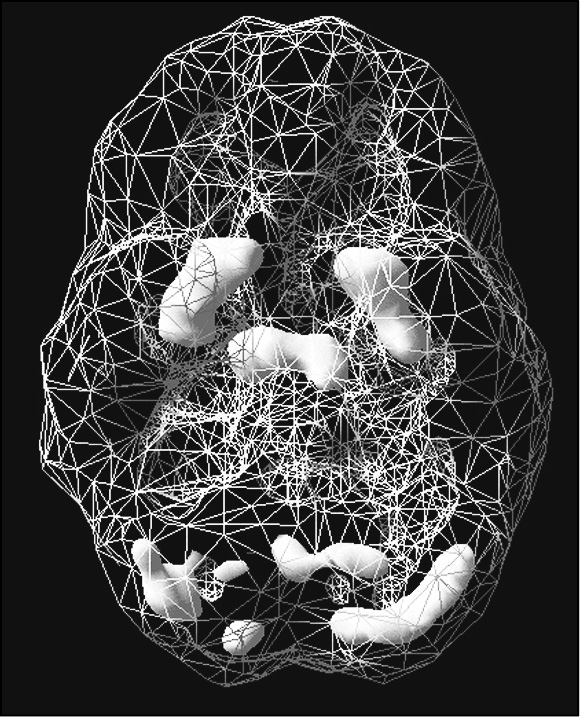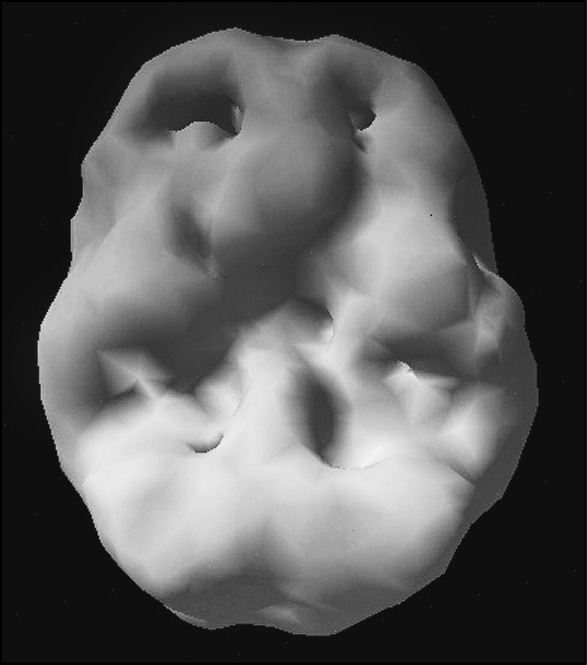CHAPTER 12
Type 7: Anxious ADD
Over the last thirteen years, I have noticed more and more the combination of ADD and anxiety symptoms running together; and when they do, the ADD symptoms become magnified. In looking at our large dataset of patients, it is very common to see the core ADD symptoms plus fear of being judged, predicting the worst, being conflict avoidant, and having physical stress symptoms, such as headaches and stomachaches. In addition, people with this type tend to freeze in anxiety-provoking situations, especially where they may be judged, such as in test taking.
We often see too much activity in the basal ganglia, those large structures deep in the brain that help produce the neurotransmitter dopamine. Typically, in most types of ADD, the basal ganglia are low in activity, but in this type they tend to be high. Strategies to soothe the basal ganglia and help focus can be so helpful.
In Classic ADD, people tend to be excitement- or conflict-seeking. They tend to have low levels of anxiety that get them into hot water, because they do not think through the consequences of their actions. In Anxious ADD, these people tend to avoid conflict like the plaque and struggle to feel secure.
Clarice
Clarice, nine, struggled in school and was frequently anxious at home. She needed a lot of reassurance and help with her homework. She was often off task, but also nervous about not getting her work done. Her stomach hurt her a lot and she never raised her hand in class. Her mother brought her to our clinic because we had seen her brother, who had the Classic ADD type. Clarice did very well on a combination of relaxation strategies, physical exercise, and the supplements magnesium and theanine, both of which promote relaxation and focus.
Jeffrey
Jeffrey, seventeen, struggled in school and in his social relationships. He was frequently off task, late, and often felt anxious and nervous. He tended to predict the worst and had trouble settling himself down. He smoked marijuana, which helped him feel calm, but it made his focus issues worse. He also tended to be shy and never raised his hand in class when he had questions. Jeffrey’s mother had been treated at our clinics for an anxiety disorder, which was also common in her family. Jeffrey’s SPECT scan showed low activity in his prefrontal cortex and very high activity in his basal ganglia.
He did very well on a combination of supplements I frequently prescribe to support healthy relaxation (theanine, magnesium, Relora, and Holy Basil) and a low dose of a stimulant.
Melody
Melody, thirty-eight, had always struggled in her career and had recently been passed over for a promotion at her job in the banking industry. She struggled to stay focused and organized, but it was her anxiety that interfered most. She avoided conflict at all costs, could not give an oral presentation, and tended to often predict the worst outcome. She often called in sick due to the constant stress she felt. She came to see us because of conflict she was having with her husband. Her SPECT scan showed marked increased activity in her basal ganglia and low prefrontal cortex activity. Her treatment involved teaching her how to soothe herself with cognitive therapy techniques and guided imagery, and she also benefitted from some supplements to calm the anxiety and help her focus, such as theanine, magnesium, Relora, and Holy Basil. After four months she felt significantly better, and eight months later she had a positive review from her boss and achieved her first raise in many years. She told me the treatment was a great investment in her future.
Gary
Gary, fifty-four, initially came to the clinic because he was having trouble with his teenage son, Josh. Gary and Josh always seemed to be fighting over Josh’s schoolwork, chores that were not getting done, and issues of disrespect. Gary hated the conflict and tried to avoid it at all costs, but then would explode after it went unaddressed for so long. Gary also struggled with headaches, negative thinking patterns, and often felt sad because he felt he had failed as a father. He felt anxious and nervous most of the time, and struggled to keep up at work.
Josh ended up being diagnosed with Classic ADD. He responded very well to treatment, and his grades and behavior improved. Gary, encouraged by Josh’s response, talked more about his own struggles with organization, attention, and procrastination. The anxiety, mixed with the inattentive symptoms, had been negatively affecting Gary since he was a child. On a combination of relaxation training, supplements, and a low dose of a stimulant, Gary felt as though he was a more focused and positive father, and performed better at work.

